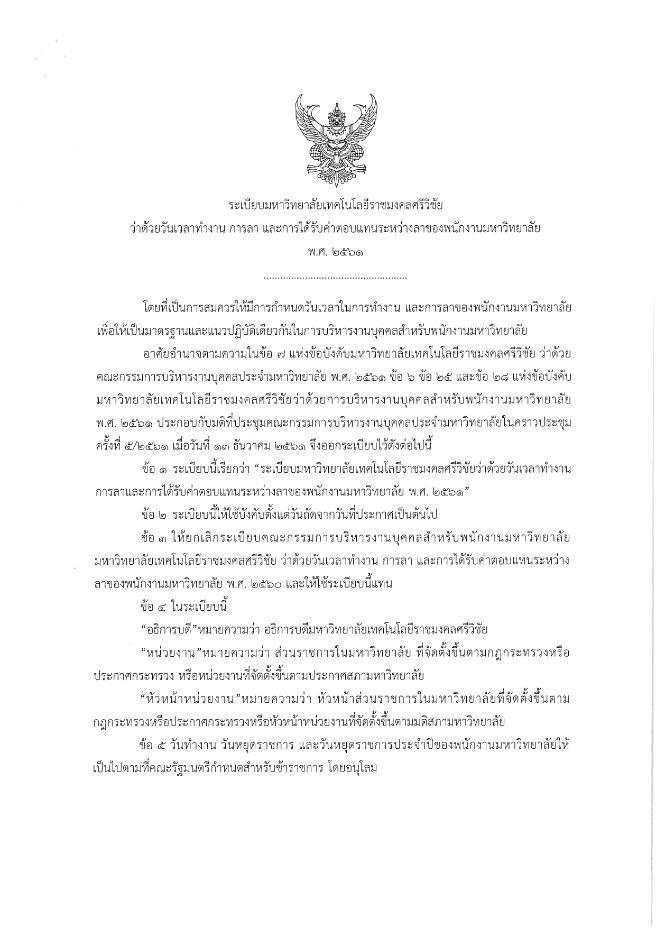Reporters: Asst.Prof.Chaiya Thanaphatsiri ,Asst.Prof.Kloyjai Krutjon ,MissNamfon Channual, Asst.Prof.Nasaporn Thammachot
Evidence Date: during 2023 Jan-Dec
Related SDGs:
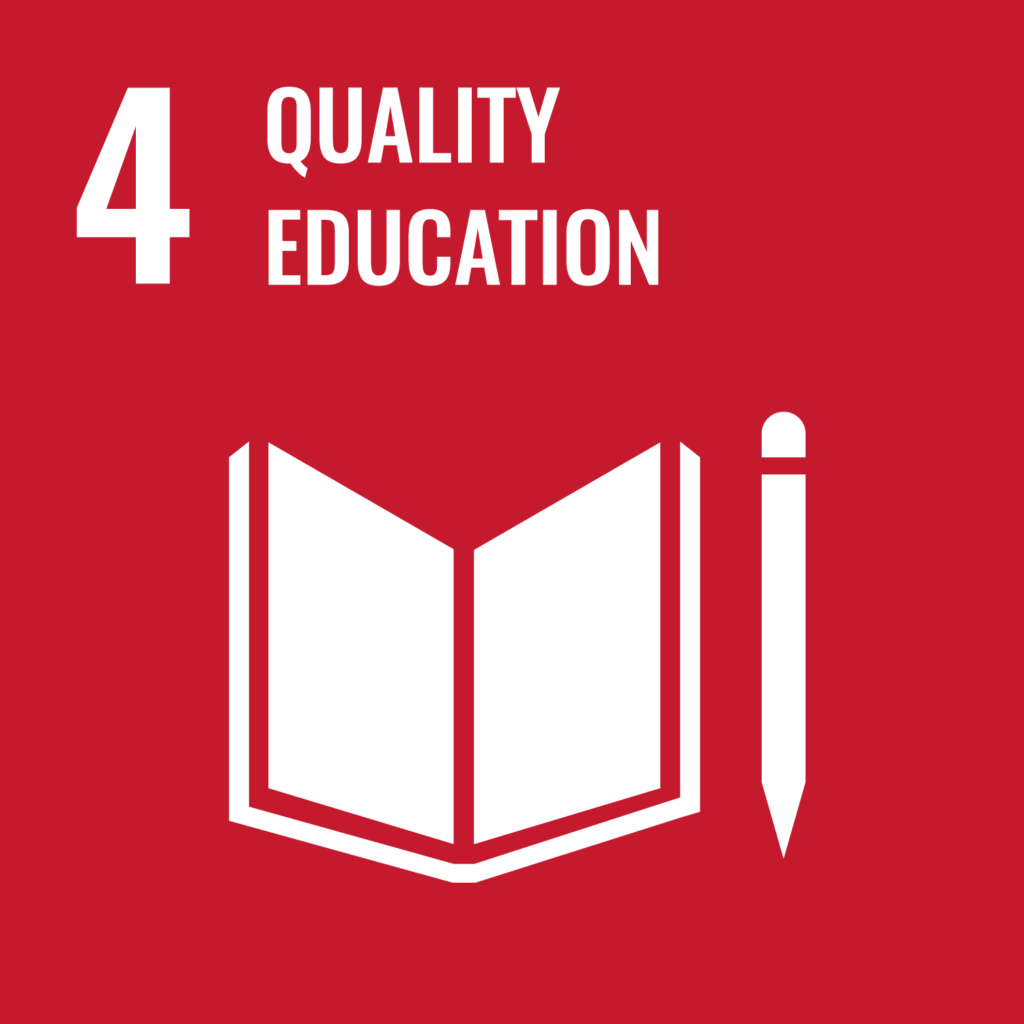
Related Indicators: 4.3.5
Details:
1. Long-term University Development Strategic Plan for Promoting Lifelong Learning Opportunities for All
The university has devised a 20-year strategic plan (2018-2037) focusing on fostering lifelong learning opportunities for all groups, regardless of age, background, or socio-economic status. With the vision of becoming an “Innovation-Driven University for Society,” the strategic plan aims to enhance social and economic development at both regional and national levels by utilizing science, technology, and innovation to create a positive societal impact. This long-term plan also aims to develop a skilled workforce equipped with essential knowledge and competencies, thereby contributing to the country’s competitiveness on a global scale.
Key to this strategic plan is the university’s commitment to supporting both individuals within the formal education system and those outside it. Emphasizing inclusivity and equitable access to education, the university has created flexible learning formats to suit various needs, such as online courses, short-term vocational training, and access to academic resources like community libraries. Additionally, the university has opened its educational resources to the public, allowing individuals of all ages to explore knowledge, develop new skills, and engage in lifelong learning. This initiative ensures the university’s role as a center for sustainable learning, which not only prepares individuals for rapid global changes but also builds a foundation for a future-oriented, happy learning community that embraces inclusivity.
This strategic plan aligns with the university’s mission to create a learning ecosystem that fosters inclusivity, encourages innovation, and contributes to the growth and resilience of society, ultimately supporting the country’s ability to thrive within an increasingly interconnected world.
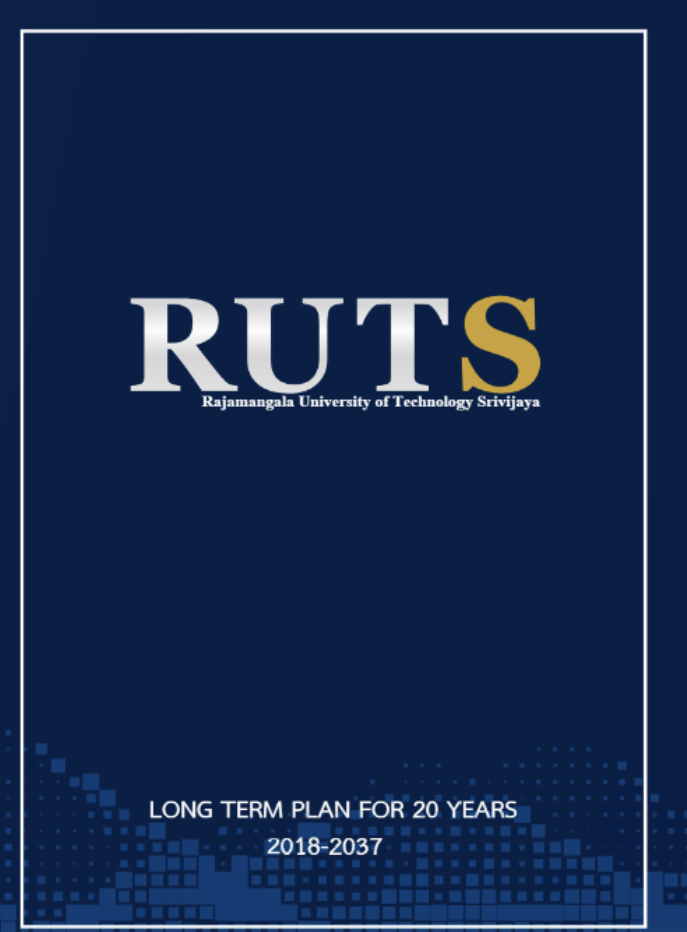
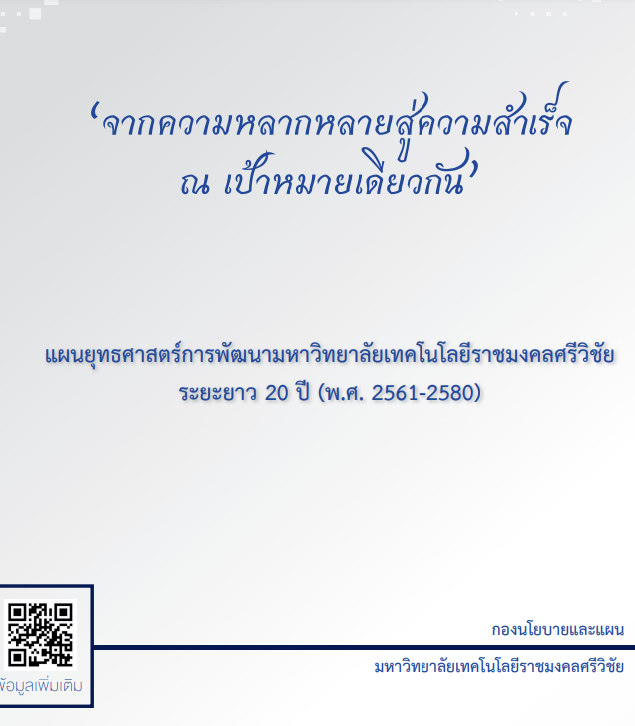
2. Policy on Equal Access to Lifelong Learning Opportunities for All
The university has implemented a policy designed to provide lifelong learning opportunities to individuals across all demographics, regardless of race, religion, social status, or physical ability. This policy aims to create an inclusive environment where people of all ages can enhance their knowledge and develop their potential through various forms of education, including formal, non-formal, and informal learning. The university also offers flexible learning options, such as self-directed study, short-term professional training, and open educational resources, to accommodate diverse interests, needs, and skill levels.
In support of this policy, the university has established regulations on undergraduate education and lifelong learning, which allow individuals to engage in self-paced learning aligned with their interests, readiness, and capabilities. These regulations promote outcome-based assessment through diverse learning experiences, including knowledge gained from people, personal experiences, social interactions, media, and other resources. To further enhance accessibility, the university provides resources such as libraries, digital learning platforms, and tailored services for people with disabilities or physical limitations. Additionally, the university has developed guides and training programs for using these resources, ensuring that individuals who need special assistance can access learning materials comfortably and equitably.
This policy underscores the university’s commitment to fostering a lifelong learning culture that empowers all individuals to pursue personal and professional growth, thereby advancing educational equity and inclusivity in the broader community.
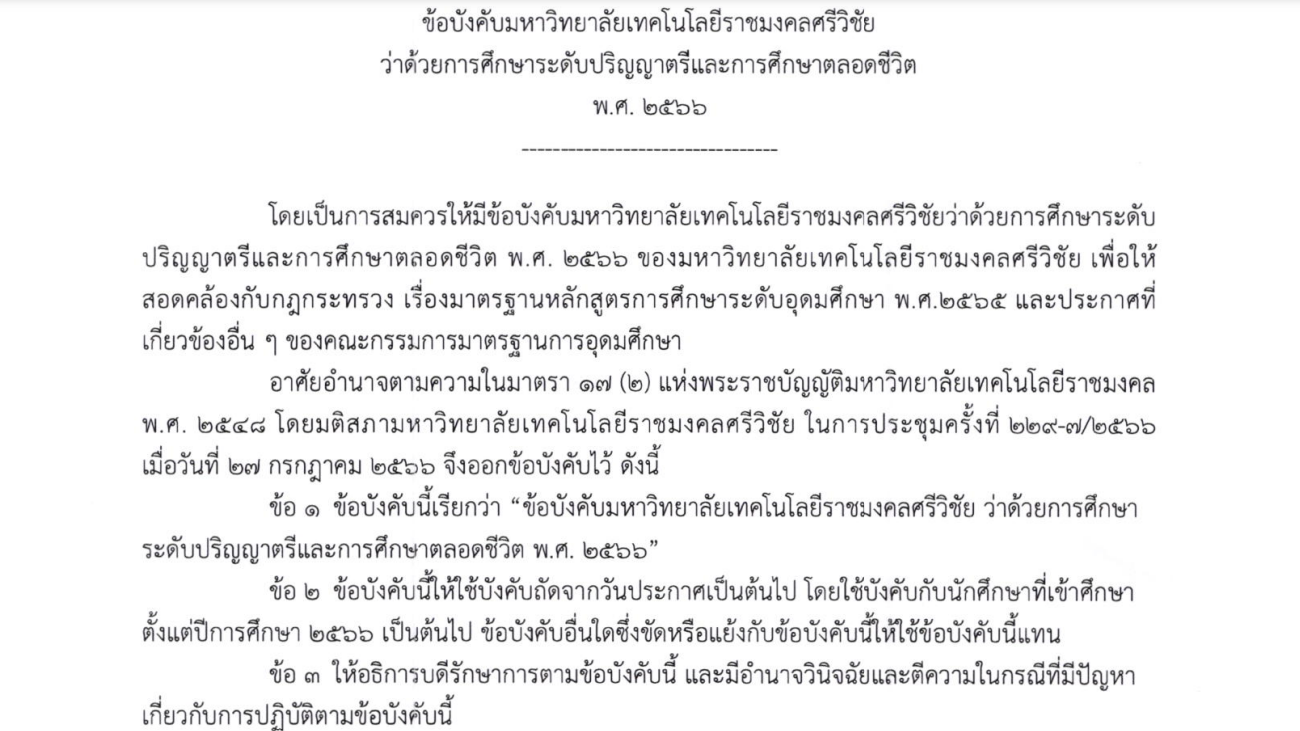
2.1 Open Online Courses for All
Rajamangala University of Technology Srivijaya (RUTS) has developed and launched a variety of online courses to cater to the public’s growing demand for self-development in modern times. These courses cover diverse fields, such as Healthy Food Entrepreneurship, Camp Management, Stock Photography for the Tourism Industry, and Community Tour Guiding. Designed for accessibility, these courses are open to all individuals, free of charge, with no restrictions on age or social status, ensuring equal opportunities for everyone to pursue education. The course materials are presented in an easily understandable format, with lessons broken down into smaller modules, allowing learners to progress at their own pace. The courses can be accessed via computer or mobile devices, enhancing convenience and accessibility.
Moreover, these courses align with current labor market demands, such as skills required in the tourism industry and essential digital skills across multiple professions. They also cover personal finance management skills, aiding learners in life planning and enhancing job opportunities. By offering these courses, RMUTSV supports individuals from all backgrounds in developing practical skills for daily life and increasing their employability in the future. These offerings are part of the university’s strategic commitment to lifelong learning services, free from financial burdens or other barriers, thus empowering the public to acquire essential skills for professional and personal growth.
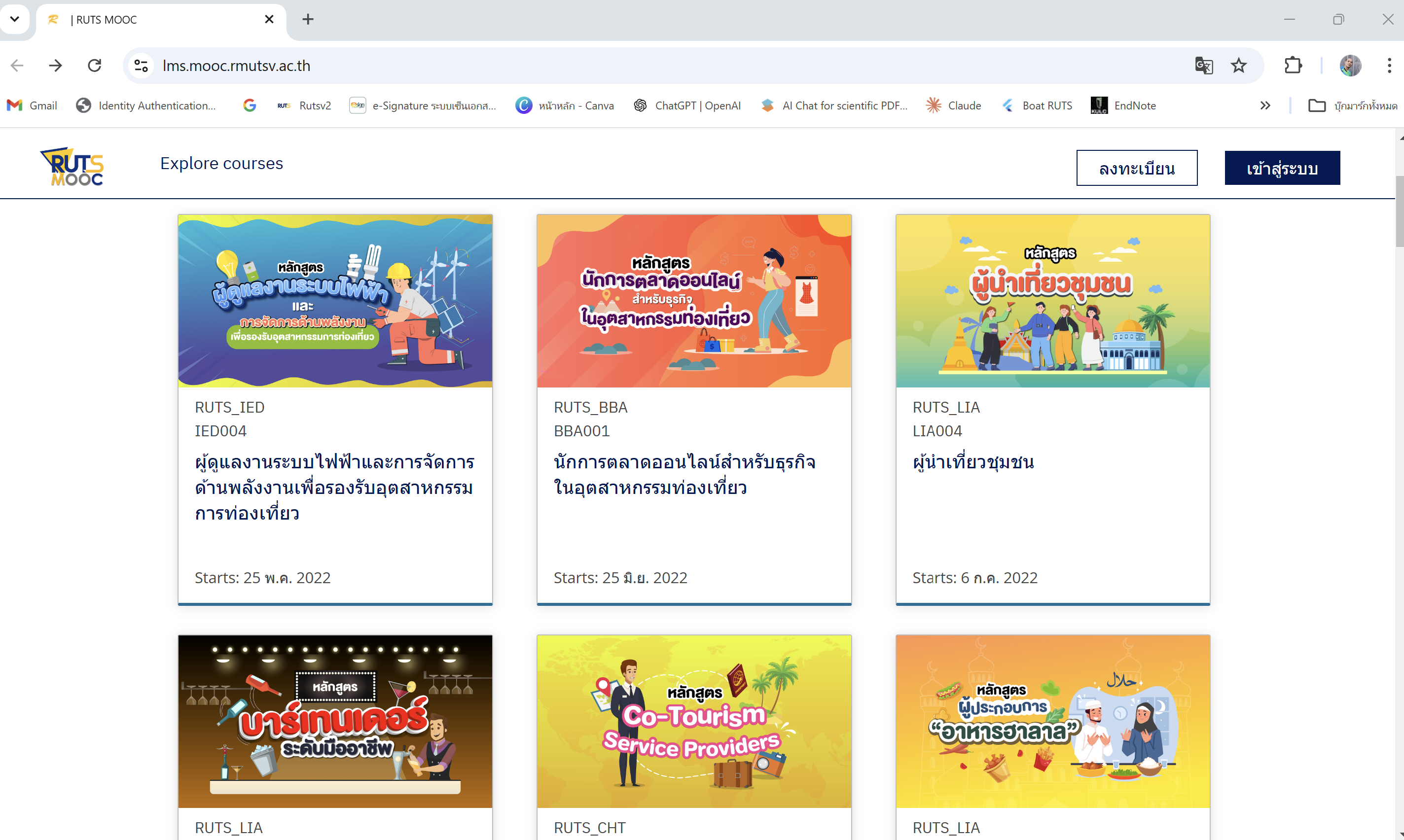
2.2 The Institute of Natural Resources and Environment (Trang Aquarium): A Community Marine Learning Center for All
The Institute of Natural Resources and Environment (Trang Aquarium) is a division of Rajamangala University of Technology Srivijaya, officially established on September 25, 2008, and located in Mai Fat Subdistrict, Sikao District, Trang Province. The institute’s primary mission is to provide academic support and enhance learning opportunities through active partnerships with external organizations, including government agencies, private sector entities, and local communities. Its goal is to enrich knowledge in natural resource conservation and environmental development among youth, the general public, and students. This mission is achieved through various informative outreach formats, utilizing modern information technology to offer visitors an engaging and accessible learning experience.
The institute aims to serve as a comprehensive learning hub for the conservation and sustainable development of natural resources and the environment. It places a strong emphasis on fostering environmental consciousness in youth and people of all ages to build a deeper understanding of the importance of environmental preservation and the continuity of local cultural heritage. The institute conducts educational programs and interactive activities, inviting community members and young people to participate in hands-on experiences. Key activities include learning about aquatic animal care, natural exploration, reforestation, and coral conservation, all designed to instill a sense of responsibility toward maintaining ecological balance through experiential learning.
In addition, the institute provides opportunities for students and external participants to engage in real-world training related to natural resource conservation. Courses and workshops are organized to develop specialized skills for conservation-related tasks, such as aquarium management, environmental laboratory work, and scientific data collection. This approach allows participants to gain valuable skills and practical knowledge directly applicable to future careers. The institute thus plays a significant role in promoting sustainable conservation and development of natural resources, benefiting both the community and society at large.
นๆ 
2.3 Rajamangala Srivijaya Fair 2023 Virtual Exhibition: A Comprehensive Learning Platform for All Ages
Rajamangala University of Technology Srivijaya (RMUTSV) launched the Rajamangala Srivijaya Fair Open House 2023, held from January 9-13, 2023, in an innovative Virtual Exhibition format. This online event allowed attendees to access and explore the exhibition from anywhere, eliminating the need for physical attendance. The Virtual Exhibition showcased academic work, research projects, inventions, and innovations developed through RMUTSV’s learning and research processes. The event emphasized the dissemination of technology and knowledge, making it accessible and visible to the public.
Beyond showcasing various works, the event also included information on the university’s diverse academic programs, providing guidance to students, prospective students, and the general public. The virtual format made information about programs, teaching methods, and further study opportunities readily accessible. RMUTSV organized a team to offer online consultations, allowing participants to discuss educational pathways, courses aligning with their interests, and career trajectories, creating a well-rounded resource for individuals making informed decisions about their educational future.
This virtual fair opened opportunities to people of all genders, ages, and backgrounds, including students, professionals, and seniors, with no restrictions on location or timing. It also fostered academic networking across various institutions and communities. Participants could freely connect and exchange knowledge with experts, researchers, and individuals interested in diverse fields.
Furthermore, the virtual format promoted digital literacy and skills among participants, especially youth, who gained firsthand experience with digital learning tools. Events like these not only enhance digital competency but also prepare attendees to adapt to modern digital learning environments, supporting their growth and readiness for future technological advancements.
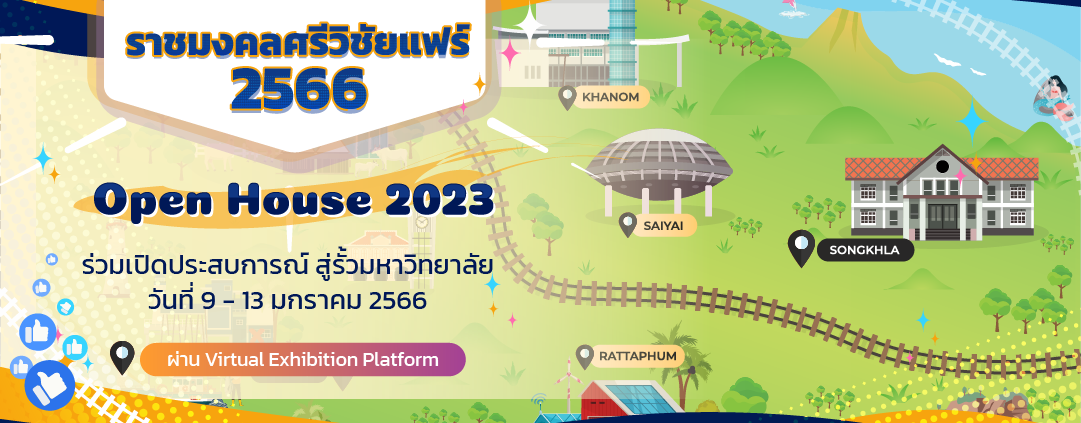
3. Policy on Academic Services and Support for Cultural and Local Knowledge as Community Learning Resources
The university has established a policy to provide academic services accessible to the general public while actively supporting the preservation of cultural heritage and local wisdom as valuable community learning resources. Through the establishment of the Office of Innovation Management and Technology Transfer, the university offers expertise in academic services, intellectual property, and technology transfer, aiming to bring knowledge and innovation to the community and industry sectors. This office facilitates knowledge-sharing that empowers local communities to become self-reliant and supports the preservation and promotion of cultural heritage and local wisdom as essential learning resources.
This policy emphasizes lifelong learning through partnerships with various sectors, including public, private, and civil society organizations, to support sustainable and accessible educational opportunities for all. It enables the community to acquire essential life and professional skills. Additionally, the university organizes knowledge-enhancement activities for the community, such as workshops on natural resource management, cultural preservation, and the development of skills that can be practically applied in daily life.
By creating a framework that connects academic resources with cultural and local heritage, this policy promotes lifelong learning that preserves and enhances the unique identities of local communities, thus contributing to a more inclusive and sustainable society.
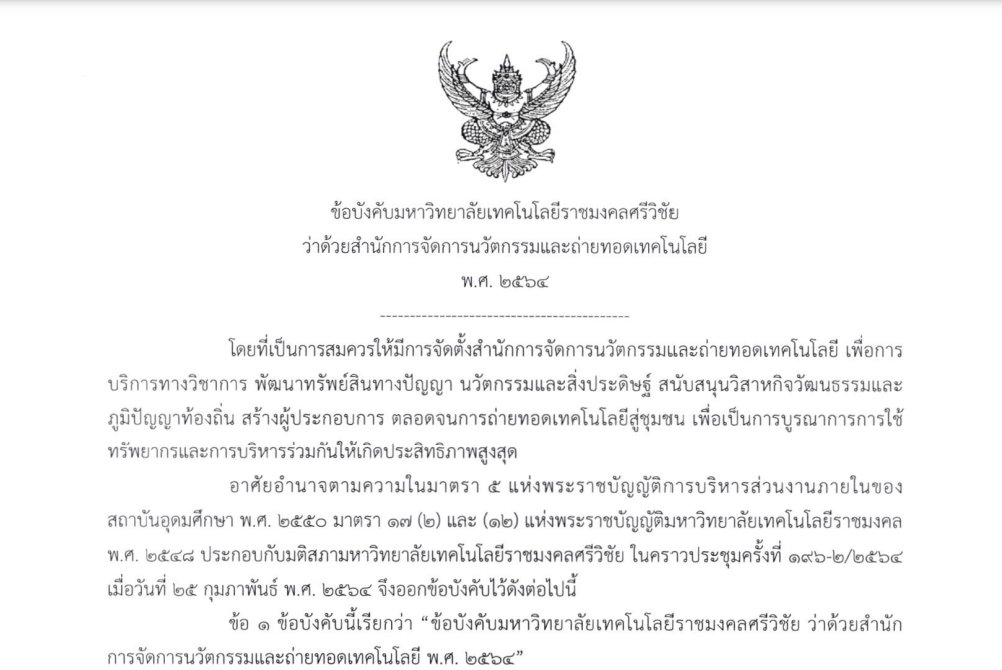
3.1 University-Driven Cultural Capital of Manora to Boost Songkhla’s Creative Economy
Rajamangala University of Technology Srivijaya (RUTS), in collaboration with the Association of Siamese Architects under Royal Patronage and the Songkhla Provincial Cultural Office, organized the event “Open House, Open City: Telling the Story of Manora.” This initiative aimed to establish a cooperative mechanism and integrate efforts within the cultural community to promote and strengthen the cultural heritage of Manora. The event facilitated social interactions across generations, enhancing the shared cultural legacy between older and younger generations and fortifying the local economy and social cohesion of cultural entrepreneurs in Songkhla.
This collaboration highlights Manora as a cultural legacy with significant economic potential, aiming to enhance the capacity of local communities through the production of cultural goods, the creation of cultural spaces, and the provision of culturally-themed services that reflect the unique values of the region. The event represents a multi-sector partnership dedicated to preserving and revitalizing the art of Manora, an intangible cultural heritage recognized by UNESCO as the third of Thailand’s nationally treasured arts, following Thai massage and Khon.
The preservation and transmission of this intangible cultural heritage, Manora, emphasizes the role of Manora experts—performing artists, instructors, and entrepreneurs engaged in Manora-related businesses. These individuals are crucial in accurately imparting the art and knowledge of Manora to future generations, ensuring the cultural tradition’s enduring value and sustainability within Songkhla’s local communities.
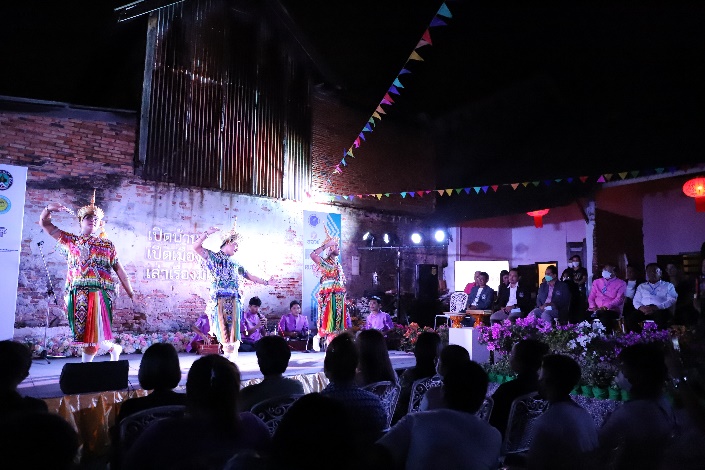
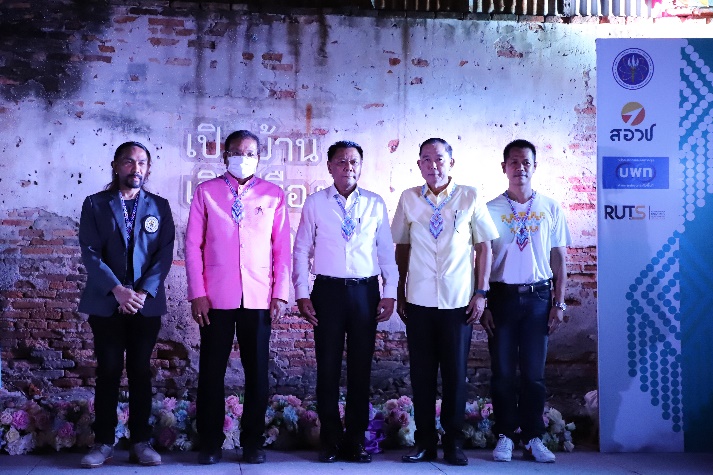
4. Policy on Research Budget Management for Knowledge Creation and Technology Transfer to Communities
The university has established a policy on budget management to support research, knowledge creation, and technology transfer for the benefit of society. This policy seeks to expand access to new, practical technologies that enhance everyday life and quality of living within local communities. The policy prioritizes lifelong learning opportunities by enabling community members to engage with practical training in useful technologies, such as agricultural innovations for increased productivity, sustainable natural resource management, and renewable energy applications to promote local development.
The allocated research budget supports community-centered, hands-on learning activities, providing people with new skills that positively impact their daily lives. Additionally, the university has developed partnerships with local organizations and private sectors, ensuring that knowledge and technology are utilized for both commercial and public benefit. This policy-driven budget allocation fosters research initiatives that can be translated into practical applications, extending the reach of academic work and offering lasting advantages for society.
Through this policy, the university strengthens its role as a knowledge hub, promoting lifelong learning and equipping communities with the tools they need for self-reliance and sustainable development, ultimately creating a positive impact on community resilience and quality of life.
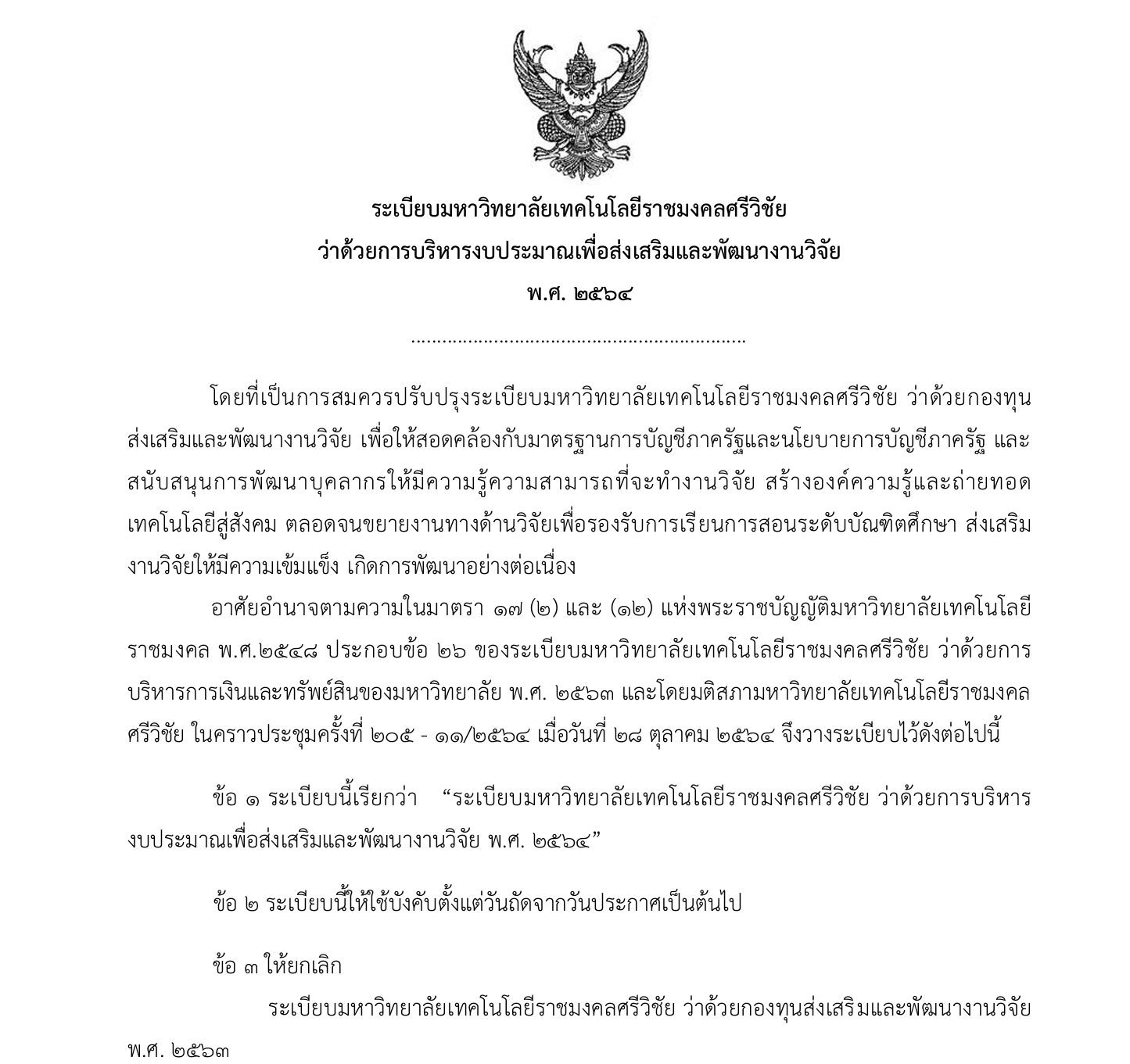
4.1 Enhancing Researcher Capacity and Promoting Research for Commercial and Societal Applications
The Institute of Research and Development at Rajamangala University of Technology Srivijaya (RMUTSV) organized the “Researcher Capacity Development and Promotion of Research for Commercial or Societal Applications” project. As part of this initiative, the institute held an activity titled “Developing Research Proposals for External Funding” from May 25-26, 2023. Associate Professor Praphasri Srichai, Director of the Institute of Research and Development, welcomed participants to the training. The morning session featured a lecture by Assistant Professor Dr. Apirak Songsak, Vice President of RMUTSV, on “Research Directions in Agriculture at the University.” Another presentation on using the Impact Pathway tool for research development was given by Assistant Professor Bunrat Boonratsami, Assistant Director of the Innovation Management and Technology Transfer Office.
In the afternoon, Associate Professor Dr. Bundit Innawong, Director of Local Enterprises Research Framework, Area-Based Development Fund Management Unit (A-BFMU), presented on “Supply Chain and Value Chain Analysis.” Additionally, Ms. Piyathida Teerarannarong, Director of the Research Support Office of the Agricultural Research Development Agency (ARDA), provided insights into the ARDA research framework for the 2024 fiscal year and encouraged RMUTSV researchers to develop funding-oriented proposals.
The event included group workshops focused on proposal development, with guidance from experts such as Associate Professor Dr. Pin Chanchula, Assistant Professor Dr. Papasakorn Areekul, and Dr. Jetsada Sopharat. These experts led discussions in research areas like plant science, smart farming, animal science, and knowledge management (KM), offering recommendations to align proposals with specific funding metrics and indicators. Over 80 RMUTSV researchers attended the workshop at Rue Rasada Hotel in Trang Province, demonstrating strong interest in enhancing their research skills and creating high-quality proposals aligned with societal and commercial goals.
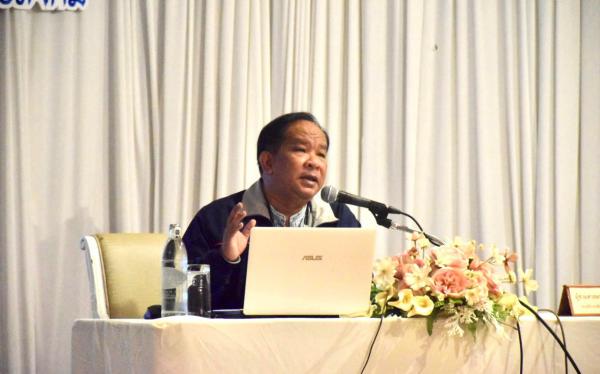
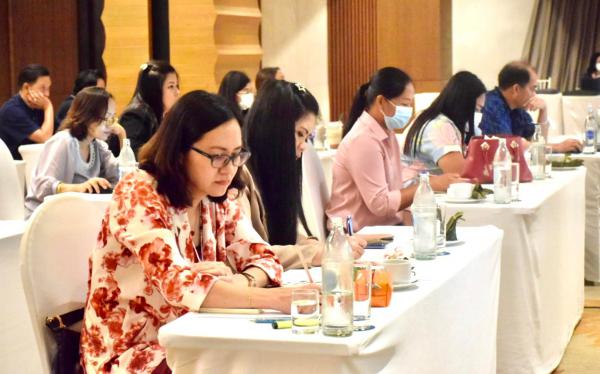
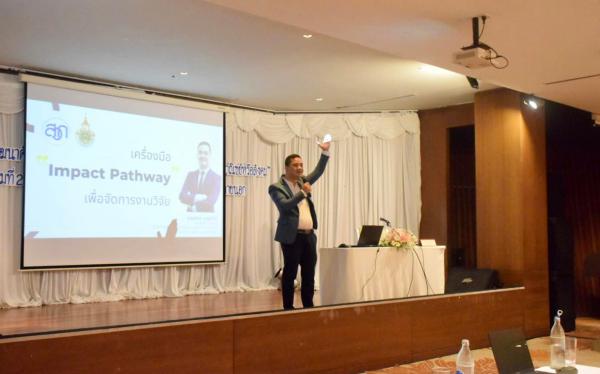
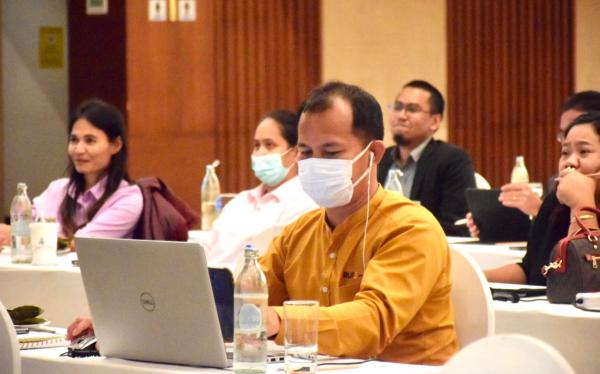
5. Strategic Plan for Research and Innovation (2023-2030) Focused on Creating Socially Beneficial Innovation
The university’s strategic plan for research and innovation (2023-2030) prioritizes developing socially impactful innovations that support community well-being and drive economic value. This plan aims to enhance the quality of life by creating technology and innovations aligned with the unique needs and characteristics of local areas. Through collaborations with external organizations, including government agencies and private sector entities, the university is committed to advancing practical technologies that address community-specific challenges, such as water management for agricultural regions, renewable energy solutions for household use, and the development of sustainable livelihoods suited to local lifestyles.
A key focus of this strategy is to empower communities for self-sufficiency by promoting the use of technology and innovation in various productive processes and career development pathways. The university also supports lifelong learning by offering free public workshops and training sessions, such as waste management in households, value-added processing of local raw materials, and the application of modern agricultural technology. These initiatives aim to equip individuals with skills that benefit their everyday lives and enable them to adapt to changing economic and social landscapes.
By creating an environment that fosters knowledge exchange and community engagement, this strategic plan not only amplifies the university’s social impact but also positions it as a key enabler of sustainable, inclusive development. The strategy prepares communities for future challenges and ensures they have the skills and resources to thrive in an evolving world.

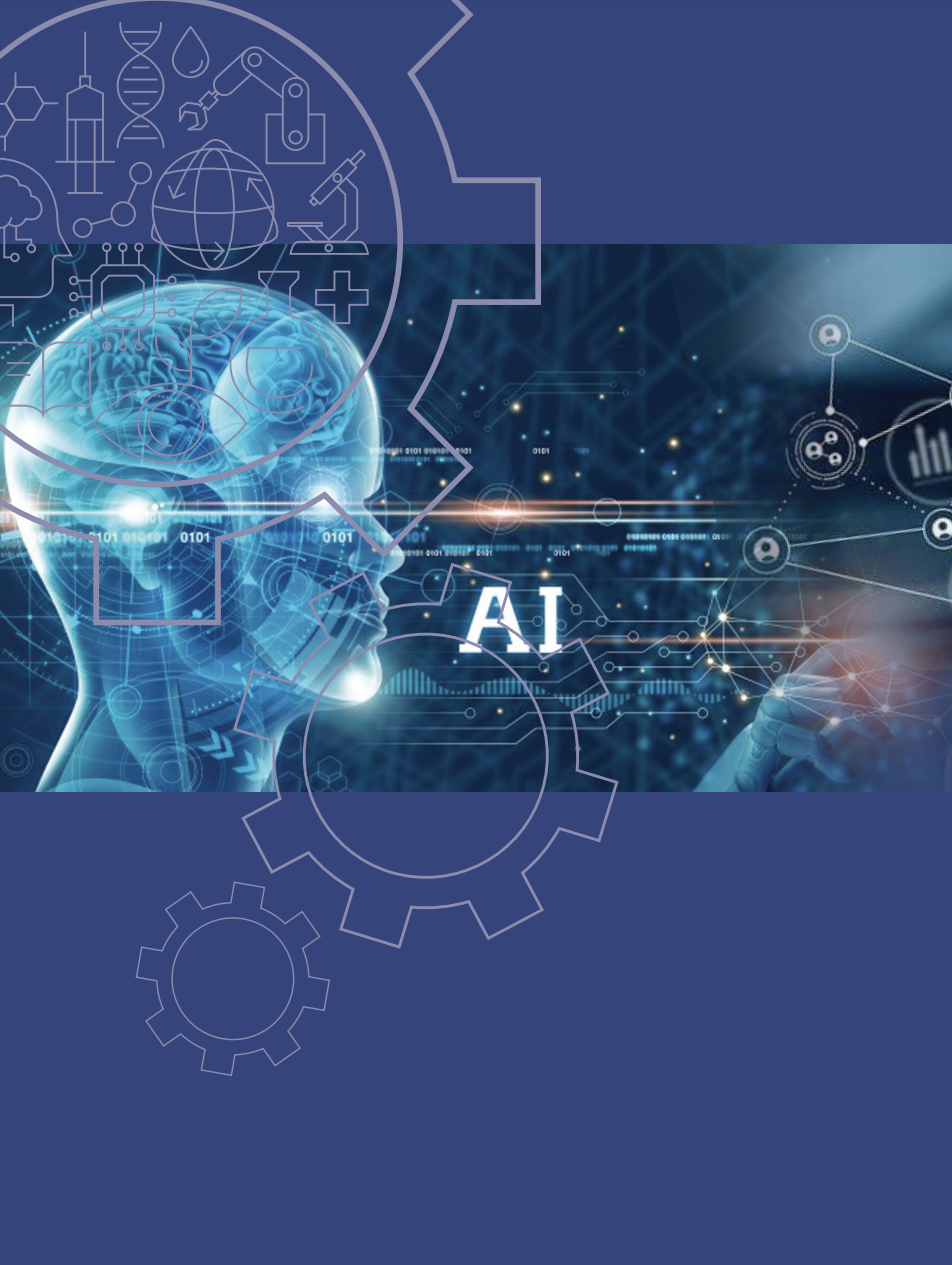
5.1 University Develops Personnel for Managing Research, Innovation, and Academic Services for Society
From July 28-30, 2023, Rajamangala University of Technology Srivijaya (RUTS), in collaboration with the Rajamangala University of Technology Network, organized a workshop titled “Research, Innovation Management, and Academic Services for Society.” The workshop was spearheaded by the Research Subcommittee and the Research and Development Institutes Network of the nine Rajamangala universities to discuss strategies for advancing technology development and promoting innovation aligned with the nation’s economic, social, and industrial growth goals.
The event featured a keynote presentation by Associate Professor Dr. Phongphan Kaewtatip, Deputy Director of the Office of the Science, Research, and Innovation Promotion Commission (OSRI), who outlined the national directions for research and innovation and highlighted expectations for the Rajamangala university network’s contributions. Professor Dr. Suwat Thanyaros, President of Rajamangala University of Technology Srivijaya, presented on transforming the Rajamangala Network in response to emerging challenges.
The event, held at Ao Nang Villa Resort, Krabi Province, also included a token of appreciation ceremony led by Professor Dr. Suwat Thanyaros, who presented souvenirs to guest speakers and representatives of the Rajamangala University Network. The workshop marked a significant step in planning and developing human resources dedicated to enhancing research management, fostering innovation, and providing impactful academic services for societal benefit.
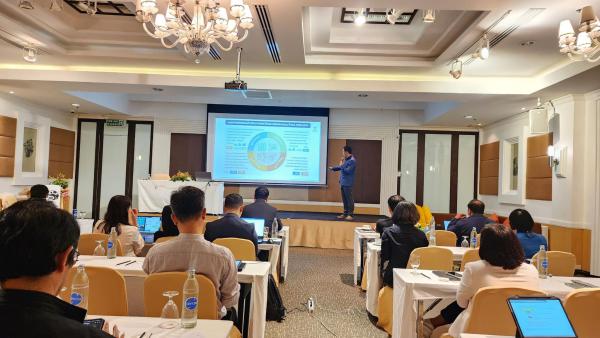
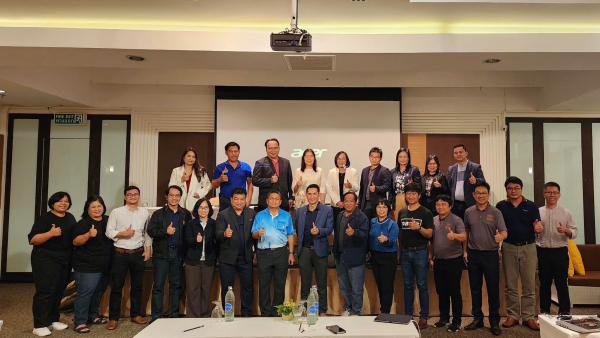
Related Links:
- https://plan.rmutsv.ac.th/ruts/2024/02/27/3331/
- https://statute.rmutsv.ac.th/file/39636.pdf
- https://council.rmutsv.ac.th/sites/council.rmutsv.ac.th/files/work/CouncilRmutsv/Rules/2564/25022564.pdf
- https://statute.rmutsv.ac.th/file/873855.pdf
- https://rdi.rmutsv.ac.th/ruts/wp-content/uploads/2024/09/Research-and-Innovation-Strategic-Plan-2023-2024.pdf
- https://lms.mooc.rmutsv.ac.th/
- https://rdi.rmutsv.ac.th/_info/th/news/1078-1691394658-349-070823
- https://srivijayafair.rmutsv.ac.th/
- https://songkhla.prd.go.th/th/content/category/detail/id/33/iid/153153

